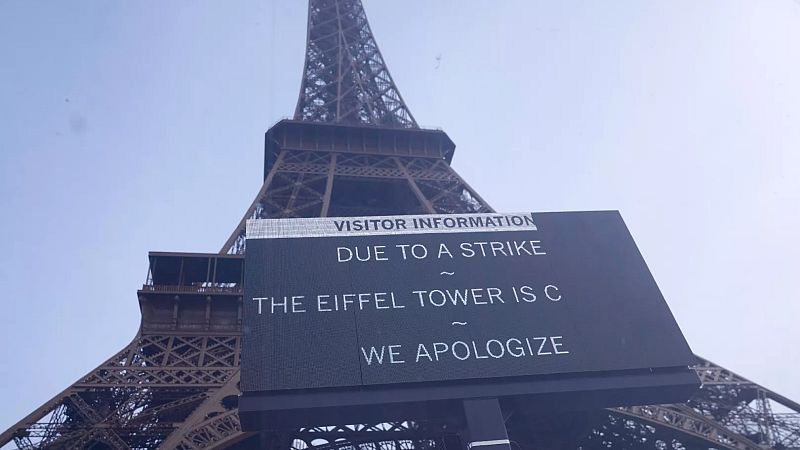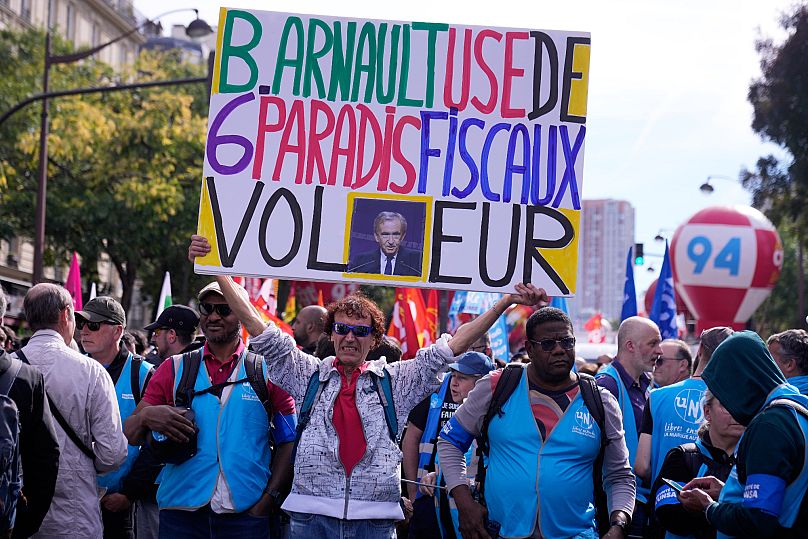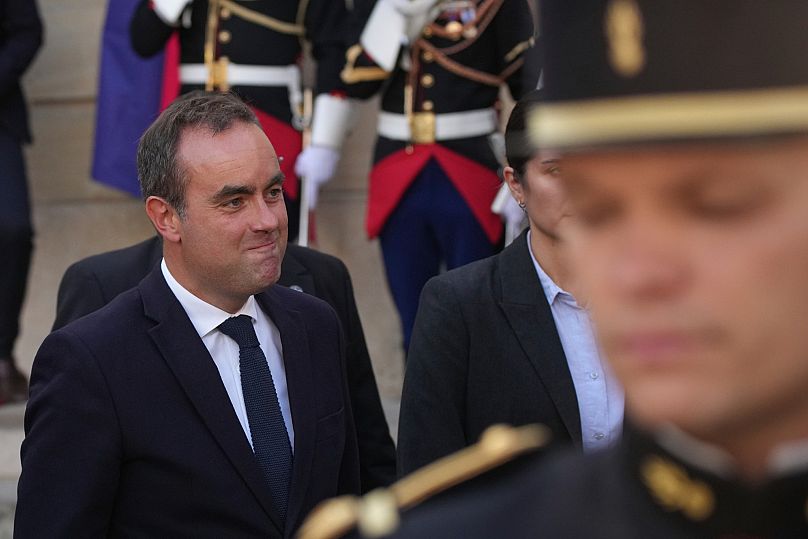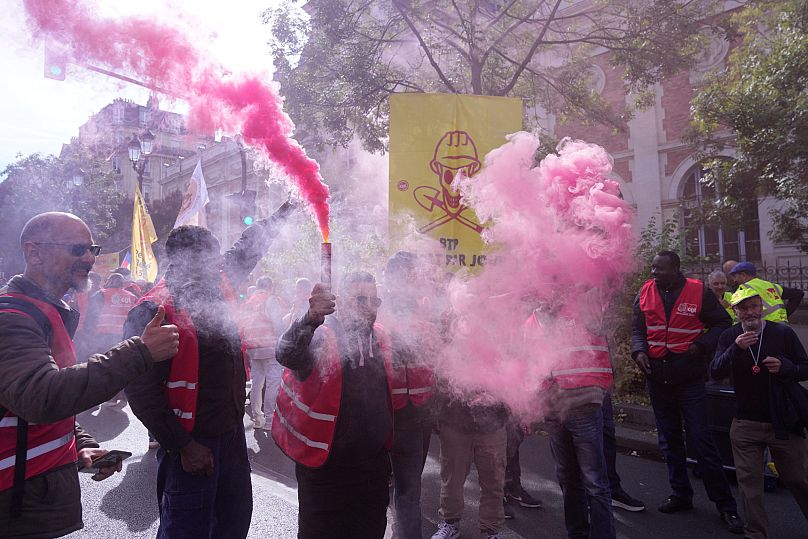Eiffel Tower closed as nationwide strikes held across France against spending cuts

Protesters took to the streets of more than 200 towns and cities across France on Thursday to denounce spending cuts and demand higher taxes on the rich.
In Paris, at least 24,000 workers, retirees and students started marching on Thursday afternoon from Place d'Italie with the Eiffel Tower informing visitors in a statement it was closed due to the strike.
The nationwide strike, called by France's major unions, is the latest in a series of protests that started last month amid political turmoil and heated budget talks.
The CGT, the country’s largest union, put the figure at 600,000, but its own leaders admitted momentum was fading compared to protests in September which drew between half a million people.
Unions are urging Prime Minister Sébastien Lecornu to abandon draft budget measures proposed by his predecessor, which include social welfare freezes and austerity measures that many say will further erode the purchasing power of low-paid and middle-class workers.
They also call for higher taxes on France's wealthiest citizens.
“The social anger is extremely strong,” CGT leader Sophie Binet told French TV BFMTV, adding that unions were demanding “social justice" and guarantees that sacrifices required by the new budget would be fairly distributed.
Lecornu, appointed last month, has not yet unveiled the details of his budget plans and has yet to appoint his government ministers, which is expected in the coming days.
He is due to deliver his general policy speech in parliament and finalise the government's budget plan. On Friday, he will host a series of meetings with opposition leaders, including Marine Le Pen of the far-right National Rally and representatives from the Socialist Party, the Greens, and the Communists.
Their support — or potential threats of a no-confidence vote — will be critical in the upcoming budget vote.
According to aides cited by French media, the prime minister is weighing measures to ease the cost of living for workers, including a possible income tax cut for low-paid couples and reduced payroll charges on overtime hours.
Government collapse
The previous minority government, led by François Bayrou, collapsed in early September after losing a crucial confidence vote in parliament.
Bayrou had proposed a series of unpopular measures in a bid to reign in France’s fragile public finances.
Last year's deficit reached 5.8% of GDP, nearly double the EU ceiling of 3%, while national debt now stands at more than €3.3 trillion, roughly 114% of economic output.
Bayrou had argued that drastic cuts were unavoidable, putting forward a plan to slash €44 billion in spending by 2026, partly by scrapping two public holidays.
Binet said on Thursday: "It's true, it’s the first time that there are three days of strikes and protests in a month without a government or budget."
Speaking to BFM TV, she was asked about the timing of the latest action.
"Why are we protesting now? Because we feel that it's now that the decisions are being made and we want to be heard."
The French Interior Ministry said 85 000 protesters had taken to the street by midday outside Paris.
SNCF, the national rail company, said high-speed train services were running normally on Thursday while some regional lines were affected by partial disruptions.
In Paris, metro traffic was close to normal but many commuting trains were running at reduced capacity.
Some teachers and healthcare workers have also joined the strike, but overall, early figures appeared to show less people responded to the unions’ call than last month.
On 18 September, more than 500,000 demonstrators marched in France’s towns and cities, including Paris, according to figures from police and interior ministry. Unions reported more than 1 million strikers and protesters nationwide.
The week before, a day of anti-government action across France saw streets choked with smoke, barricades in flames and volleys of tear gas amid the "Block Everything" campaign.
Today




